Home

Freezing Eggs: The Pros and Cons of Preserving Your Fertility
In this Article
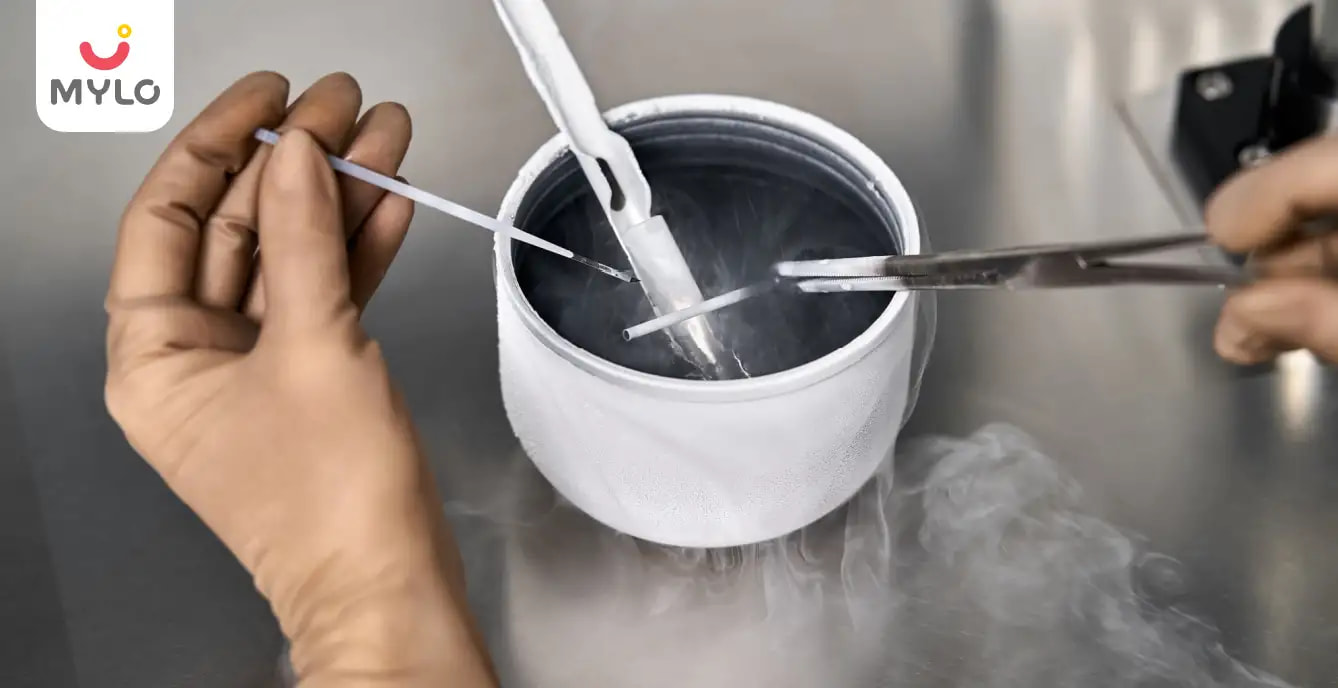
Getting Pregnant
Freezing Eggs: The Pros and Cons of Preserving Your Fertility
Updated on 29 September 2023



Medically Reviewed by
Dr. Shruti Tanwar
C-section & gynae problems - MBBS| MS (OBS & Gynae)
View Profile

“Mona, when are you planning to settle down, considering your current age of 35,” asked a concerned Niharika. “Please take a moment to relax, my friend. I am now dedicated to my career and embracing the joys of life to the fullest. Marriage is off the cards anytime soon,” remarked Mona. “But are you not worried about having kids,” Niharika said. Mona announced, “I am indeed concerned, so I made a prudent decision several years ago, following in the footsteps of celebrities like Ekta Kapoor, Mona Singh, and Rakhi Sawant.
Allow me to elaborate on this further, dear. I have undergone a process known as freezing eggs, and it will enable me to embrace motherhood when I am ready and not be compelled by the ticking of a biological clock”, said Mona. “Wow, it sounds fantastic; tell me more about what is egg freezing and the cost of freezing eggs in India, asked Niharika excitedly. Read below an all-inclusive guide about egg freezing, including the pros and cons of the procedure.
What is Egg Freezing?
Egg freezing, also known as oocyte cryopreservation, is a medical procedure in which a woman's eggs (oocytes) are extracted, preserved, and stored for future use. This process allows women to delay pregnancy and preserve their fertility by freezing their eggs at a younger age when they are typically of higher quality.
Who Should Consider Freezing Eggs?
The egg freezing process can be a valuable option for women who wish to preserve their fertility. Here are some situations in which women may consider freezing their eggs:
1. Delayed Childbearing
Women who want to delay starting a family due to career goals, educational pursuits, or personal reasons may consider egg freezing.
2. Medical Reasons
Certain medical conditions or treatments can potentially impact fertility. Women diagnosed with cancer or other diseases requiring chemotherapy or radiation may choose to freeze their eggs before undergoing these therapies, as they can affect fertility.
3. Premature Ovarian Aging
Some women experience premature ovarian aging, where their ovarian reserve declines at a younger age than usual. Egg freezing can be an option for these women to preserve their eggs while they are still of good quality.
4. Single Women
Single women who desire to have a biological child but have not found a partner or are not ready for a committed relationship may choose to freeze their eggs.
What are the Pros and Cons of Egg Freezing?
Egg freezing, like any medical procedure, has both pros and cons. It's essential to weigh these factors when considering whether or not to pursue egg freezing. Here are some potential pros and cons:
Pros of Egg Freezing
-
Fertility preservation
-
Empowerment and control
-
Peace of mind
-
Genetic testing
Cons of Egg Freezing
-
No guarantee of success
-
Cost
-
Emotional considerations
-
Limited shelf life
It's crucial to consult with a reproductive specialist to fully understand the individual benefits, risks, and limitations of egg freezing based on personal circumstances and medical history.
You may also like : Embryo Freezing: Purpose & Outcome
Egg Freezing Process: What to Expect
Freezing eggs, also known as oocyte cryopreservation, is a procedure that allows individuals to preserve their eggs for future use. Here's what you can expect during the egg freezing process:
1. Initial Consultation
The process typically begins with an initial consultation with a fertility specialist.
2. Ovarian Stimulation
You will undergo ovarian stimulation to increase the number of mature eggs available for retrieval. This involves taking hormonal medications, typically in the form of daily injections, for about 8 to 12 days to increase the number of eggs.
3. Monitoring and Ultrasound
You will visit the fertility clinic for regular monitoring throughout the ovarian stimulation phase. This typically involves blood tests to measure hormone levels and transvaginal ultrasounds to monitor the growth and development of the ovarian follicles, which contain the eggs.
4. Trigger Injection
Once the follicles have reached the desired size, you will receive a trigger injection of a medication that helps with the final maturation of the eggs. This injection is typically timed to be administered approximately 36 hours before the egg retrieval procedure.
5. Egg Retrieval
Egg retrieval is a minimally invasive surgical procedure performed under sedation or anesthesia. A doctor will use ultrasound guidance to guide a thin needle through the vaginal wall and into the ovarian follicles to retrieve the eggs. The procedure usually takes 20-30 minutes; you can expect to go home the same day.
6. Egg Freezing
Once the eggs are retrieved, they are immediately taken to the laboratory, evaluated, prepared, and frozen. The eggs are typically cryopreserved using a process called vitrification, which involves rapidly freezing them to prevent the formation of ice crystals that could damage the eggs.
7. Storage
The frozen eggs are stored in specialized tanks in a fertility clinic or a dedicated cryopreservation facility. They can be stored for an extended period, usually several years, without significantly declining quality.
You may also like : Hysteroscopy: Everything You Need to Know About This Minimally Invasive Procedure
What is the Cost of Freezing Eggs in India?
Egg freezing cost in India can vary depending on several factors, including the clinic, location, the specific services included, and any additional treatments or procedures required. However, to give you a general idea, the cost of egg freezing in India typically ranges from INR 80,000 to INR 200,000.
Is There an Egg Freezing Age Limit?
While there is no universally defined egg freezing age limit, it is generally recommended that women consider the procedure before their early to mid-30s. This is because a woman's fertility begins to decline as she gets older, and the quality and quantity of her eggs diminish over time.
What are the Potential Risks of Freezing Eggs?
The egg freezing process is generally considered a safe procedure, but like any medical intervention, it carries certain potential risks and considerations. Some of the potential risks associated with egg freezing include:
-
Side effects of ovarian stimulation
-
Surgical risks (like the risk of infection)
-
Reduced egg survival and pregnancy rates
-
Emotional and financial considerations
You may also like : Improve Egg Quality in 30 Days: The Ultimate Guide to Boosting Your Fertility Naturally
Are There Any Alternative Fertility Preservation Options?
Yes, besides egg freezing, there are alternative fertility preservation options available. The choice of method depends on factors such as age, medical history, personal preferences, and the availability of resources. Some alternative options include:
1. Embryo cryopreservation
This method involves fertilizing eggs with sperm to create embryos through in vitro fertilization (IVF). The resulting embryos are then frozen and stored for future use.
2. Ovarian tissue cryopreservation
This technique involves surgically removing a piece of ovarian tissue containing immature eggs from the ovary. The tissue is then frozen and stored for potential future use. In the future, the tissue can be transplanted back into the woman's body, where it may restore ovarian function and allow for natural conception or assist with assisted reproductive techniques.
3. Ovarian suppression
For women who require cancer treatment or have conditions that can harm their fertility, ovarian suppression may be an option. This involves using medications to temporarily suppress ovarian function during cancer treatments or other medical interventions. Ovarian suppression can help protect the ovaries and potentially preserve fertility. But this line of treatment is still under research.
4. Experimental techniques
Some experimental techniques are being explored for fertility preservation, such as in vitro maturation (IVM) and the use of ovarian stem cells. These techniques are still in the early stages of research and may need to be more widely available or proven effective.
The Bottomline
In conclusion, freezing eggs is a viable option for individuals seeking to preserve their fertility for various reasons. It offers the potential to extend the window of reproductive opportunity by storing eggs for future use. While egg freezing has become increasingly common and relatively safe, it is essential to consult with a fertility specialist who can provide personalized guidance and help individuals make informed decisions about their fertility preservation journey is crucial.
References
1. Gale J, Clancy AA, Claman P. (2020). Elective egg freezing for age-related fertility decline.
2. Borovecki A, Tozzo P, Cerri N, Caenazzo L. (2018). Social egg freezing under public health perspective: Just a medical reality or a women's right? An ethical case analysis. J Public Health Res.





Medically Reviewed by
Dr. Shruti Tanwar
C-section & gynae problems - MBBS| MS (OBS & Gynae)
View Profile


Written by
Madhavi Gupta
Dr. Madhavi Gupta is an accomplished Ayurvedic doctor specializing in Medical content writing with an experience of over 10 years.
Read MoreGet baby's diet chart, and growth tips

Related Articles
Related Questions
Hello frnds..still no pain...doctor said head fix nhi hua hai..bt vagina me pain hai aur back pain bhi... anyone having same issues??

Kon kon c chije aisi hai jo pregnancy mei gas acidity jalan karti hain... Koi btayega plz bcz mujhe aksar khane ke baad hi samagh aata hai ki is chij se gas acidity jalan ho gyi hai. Please share your knowledge

I am 13 week pregnancy. Anyone having Storione-xt tablet. It better to have morning or night ???

Hlo to be moms....i hv a query...in my 9.5 wk i feel body joint pain like in ankle, knee, wrist, shoulder, toes....pain intensity is high...i cnt sleep....what should i do pls help....cn i cosult my doc.

Influenza and boostrix injection kisiko laga hai kya 8 month pregnancy me and q lagta hai ye plz reply me

Related Topics
RECENTLY PUBLISHED ARTICLES
our most recent articles

Fertility Problems
Can a Diabetic Woman Get Pregnant: Exploring the Facts and Myths
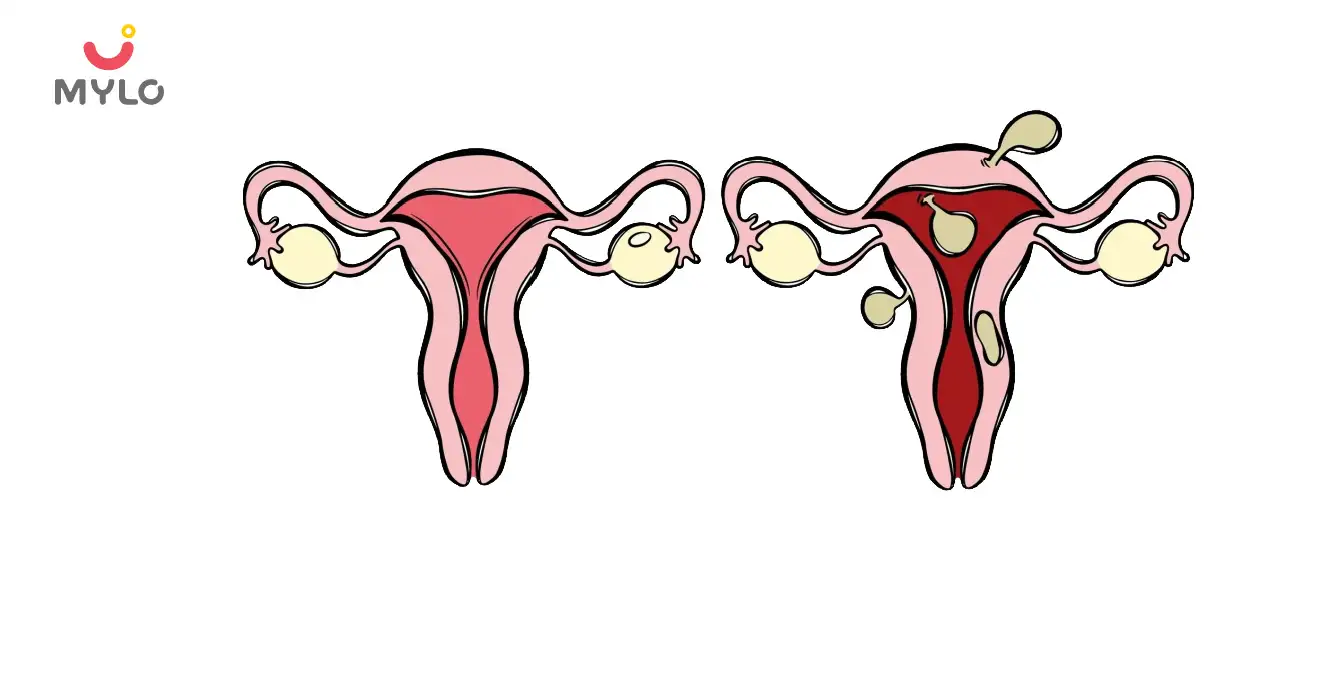
Women Specific Issues
Bulky Uterus with Fibroids: Understanding Causes, Symptoms, and Treatment Options
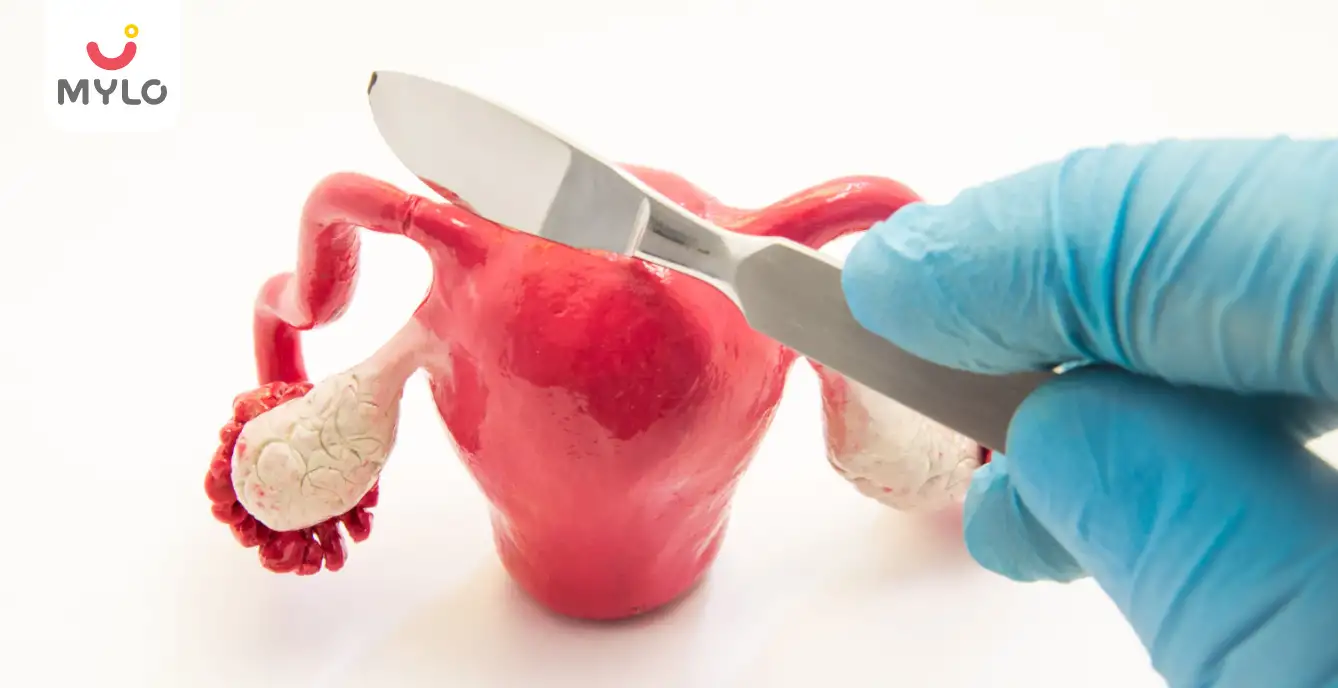
Medical Procedures
Tubal Recanalization: How This Procedure Can Help Restore Your Fertility
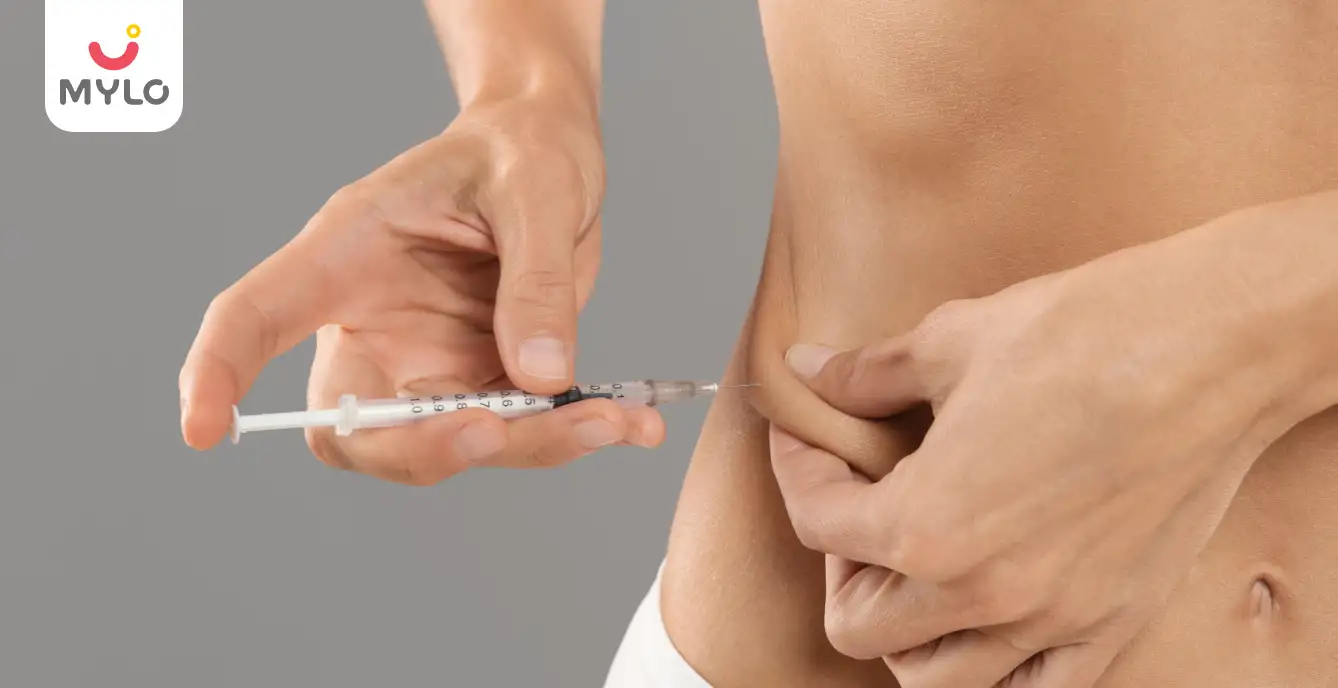
Hormones
Are FSH (Urofollitropin) Injections an Effective and Safe Fertility Treatment For You?
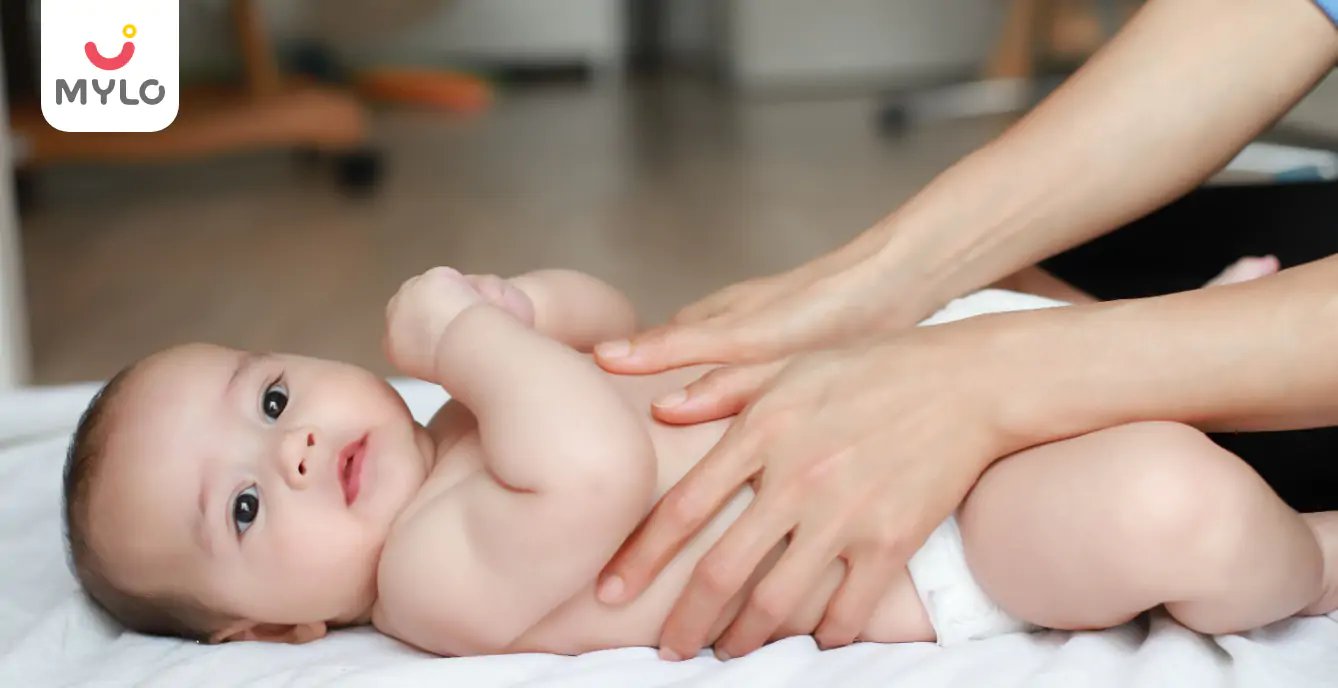
Baby Massage
The Ultimate Guide to Choosing a Baby Massage Oil for Summer
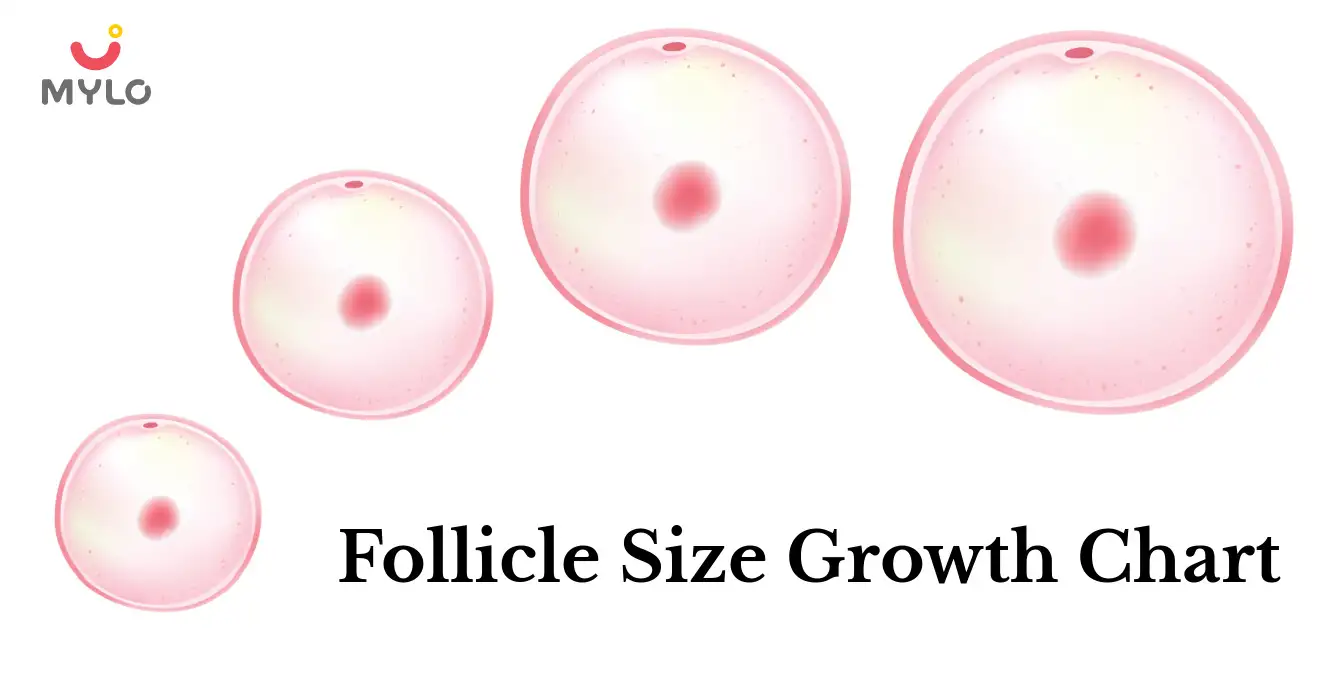
Reproductive health
The Ultimate Guide to Understanding a Follicle Size Growth Chart
- Fruits for PCOS: Your Guide to Making Healthy Choices
- Is Milk Good for PCOS: Exploring the Dairy Dilemma
- The Ultimate Guide to Using Ashokarishta for PCOS
- PCOS Pain: The Ultimate Guide to Causes and Effective Management
- 10 Best Mystery Books to Read in 2023
- 10 Best Non-Fiction Books to Read in 2023
- Is Ghee Good for PCOS: The Ultimate Guide to Benefits and Ways to Consume
- Is Curd Good for PCOS: The Ultimate Guide to Debunking Myths and Discovering Benefits
- Dark Chocolate for PCOS: Unlocking the Potential of a Guilt-Free Indulgence
- Beetroot for PCOS: Discovering a Natural Approach to Managing Symptoms
- Soy for PCOS: Should You Eat it or Avoid It?
- Cinnamon for PCOS: Discovering the Natural Support You've Been Missing
- When Do Babies Start Walking?
- The Ultimate Guide to 4th Month Pregnancy Symptoms


AWARDS AND RECOGNITION

Mylo wins Forbes D2C Disruptor award

Mylo wins The Economic Times Promising Brands 2022
AS SEEN IN

- Mylo Care: Effective and science-backed personal care and wellness solutions for a joyful you.
- Mylo Baby: Science-backed, gentle and effective personal care & hygiene range for your little one.
- Mylo Community: Trusted and empathetic community of 10mn+ parents and experts.
Product Categories
baby carrier | baby soap | baby wipes | stretch marks cream | baby cream | baby shampoo | baby massage oil | baby hair oil | stretch marks oil | baby body wash | baby powder | baby lotion | diaper rash cream | newborn diapers | teether | baby kajal | baby diapers | cloth diapers |




